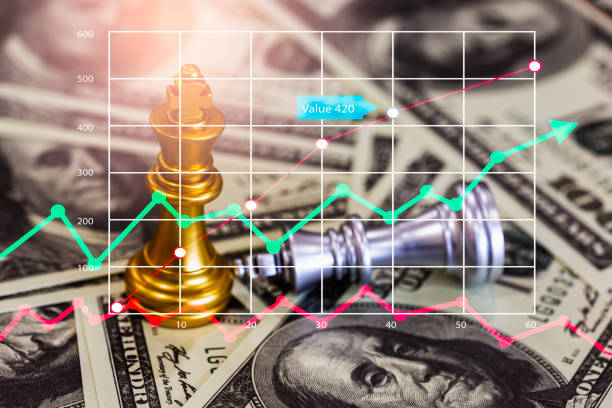Americans wagered $4.76 billion in the Super Bowl last year when the New England Patriots played the Philadelphia Eagles. 97% of this figure was illegally wagered. This will most likely change when the Super Bowl comes around. On May 14, 2018, in a highly anticipated decision, the U.S. Supreme Court repealed the Professional and Amateur Sports Protection Act. This opened the door for states to legalize sports betting.
This article discusses the basics of sports betting, including the $150 billion market, the timeline for implementation, and revenue distribution. This article will examine the impact of legalizing sports betting, including its increased popularity and engagement in sports, as well as ethical concerns and new opportunities.
How to understand sports betting
The type of betting can vary. The betting can go beyond just picking the winners and losers (the ” Money Line”). Bettors can also place bets on “point spread,” which is the number of points that one team has an advantage over the other. They can even wager on “total,” where the bettor places bets on whether the total points scored by the two teams will be higher or lower. Parlays are bets that involve two or more groups or selections. The future is a bet made in the future.
In many countries, sports betting is legal. This includes Australia, western Europe, and the U.K. Even when sports betting is not permitted, it has thrived. There are $1.8 trillion of illegal wagers placed worldwide. This is mainly on unregulated markets or illicit betting sites. According to a 2014 study, more than 80% of sports bets worldwide are placed on black markets.
There are hundreds of betting apps and sites that allow users to bet, leading to the rise of blockchain to provide a discrete way to exchange money and improve the existing system. As an example, Electroneum wants its token to be used by online betting services. Platforms like HEROcoin aim to decentralize sports betting. Sportsbooks charge high fees, and they end up with all the winnings. New platforms such as HEROcoin provide peer-to-peer gambling that is transparent and allows for the transfer of money.
Legal Sports Betting Could be a 150 Billion Dollar Business
The illegal sports betting in the U.S. is estimated at $50-150 billion. Nevada, which is the only U.S. State that allows sports keepers to operate, reported $4.8 billion for 2017. Consider that Britain, with its 65 million people and less diverse sports market, generated 20 billion wagers in the 2017 fiscal. The most popular sports in the world to bet are professional basketball and football (see below).
Daily Fantasy Sports (DFS), Fantasy Sports, and Traditional Sports Betting Traditional Sports Betting
We must clarify the terms daily fantasy sports and traditional sports betting before moving on. Fantasy sports and traditional sports gambling are both popular forms of sports-based betting. However, there are some key differences. Fantasy sports betting is, for one, legal. In fantasy sports, you are up against other players rather than bookmakers, as in traditional betting. In fantasy sports, human players form a league and select real athletes to create fictional teams. The team receives points based on the performances of the athletes throughout the season. Your team must win the most points during the entire season. This usually lasts a few weeks.
Daily Fantasy Sports is a popular subset of fantasy sports. DFS is a daily fantasy sport that lasts a single day, not a whole season. You draft your players in the morning and find out who has won the game later on that afternoon or evening. In regular fantasy sports, leagues are usually made up of friends. With DFS, you compete against random people. The pot of money can be worth millions.
Daily fantasy sports have operated in a gray area. While fantasy sports are legal, daily fantasy sports work more like a game of chance. Fantasy sports were legalized by 2006 because they are primarily a social activity, do not involve betting money, and are a game of skill rather than chance. The players can also find out if they have won or lost in months, not in seconds or minutes, as in traditional gambling. DFS has none of these arguments to its advantage. We will talk about the two biggest DFS sites in this article: DraftKings and FanDuel.
The implementation of legal sports betting may not be immediate
The decision was made in a case filed by New Jersey. New Jersey has committed to implementing it before June 2018. will need to decide for other states. States certainly have an incentive. Legal sports betting could generate additional tax revenue based on an income tax on winnings or through an excise on casino revenues less winnings. According to the American Gaming Association, if legalized in 40 states, it would generate $8 billion in local taxes and create hundreds of thousands of jobs. It could also add 20 billion dollars to GDP.
There will also be a lot of licensing and taxing to do, along with possible demands from leagues. States will have to decide who they want to tax and at what rate. Nevada taxes sports bettors with a 6.5% rate, while Pennsylvania enacted a tax of 34%. New Jersey would like to tax online sports betting at 12% and casinos at 8%. States will need to decide whether or not to allow online betting and where to place gambling. It is also important to determine who will share the revenue, including sports leagues, teams, and bookmakers. According to ESPN, conservative estimates suggest that by the year 2018, eight to nine states would have allowed sports betting in casinos, racetracks, and other venues. This number could grow to twelve or fourteen by the year 2019. Regulation is not final. The NBA and NFL both asked Congress to pass a federal law to standardize rules instead of 50 state laws.
Who Wants to Have a Piece of Legal Sports Betting Pies?
There will be many new opportunities, both for legacy and nascent companies (to be discussed further). May see new revenue streams for companies such as YouTube, Twitter, and Facebook. Sports leagues want their share of the pie. The National Basketball Association (NBA) and Major League Baseball (MLB) are among the companies that want to collect a 1 % fee for bets made on their games. The companies are pushing for ” Integrity Fees” and arguing that sports gambling is a derivative of their games. They will also have to invest money in monitoring and investigating any ethical concerns that arise from sports betting.
Sports operators and sportsbooks insisted that games would continue to be played regardless. Casino lobbyists also oppose the fees. They claim that the increased engagement and interest in games will benefit the leagues. The American Gaming Association (which advocates for the casino sector) has stated that this 1% would translate to 20% in revenue generated by sportsbooks since they only keep 5% after winnings are paid out.




